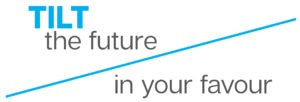
09 Feb Getting innovative around water
Water, water, every where,
Nor any drop to drink.— The Rime of the Ancient Mariner, Samuel Taylor Coleridge
I have a collection of newsletters and articles for your reading pleasure today. Mainly around water.
Water Innovation
Water is this interesting conundrum. 71% of the earth is covered in water. 96.5% of that is in the oceans. Water management programs walk a tight balance in making sure that there is as little shrinkage as possible from the precious sources of freshwater to their destinations.
That is the common theme in the first two links:
I found this concept of installing solar panels above the water canals in various countries fascinating! See if you also pull some of the multiple benefits of this idea.
On one hand, it leverages available land very effectively. Then — in a symbiotic relationship — the solar panels prevent the evaporation of water from the canals into the arid air in these hot regions, AND the water running beneath the solar panels keeps them cooler!
The second link from Adam Tank’s newsletter talks about the challenges of getting water to its destination. And how what is old can be as effective as what is new.
Saving Sea Turtles
Photo by Cédric Frixon on Unsplash
Sea Turtle Scoop – Did you know that Leatherback Turtles travel up and down the eastern shores of North America, feeding off jelly fish, and showing up in Nova Scotia, Canada? This newsletter edition focused on the Turtle course that pelagic line fisherman have to take so that they know how to release turtles that might get caught in the nets they use to catch tuna and swordfish.
you can be someone whose job it is to catch (and kill) fish and you can also be someone who cares deeply for the survival—the conservation—of all marine species.
Both of those things can be true at the same time.
Sea Turtle Scoop is published by Tilt reader Kathleen Martin. (While you are there, stay a little longer on her site and enjoy last week’s article on how polar bears are squatting in an abandoned research station on Kolyuchin Island—just northwest of Alaska.) Another Tilter (thanks Danny van Leeuwen) extended my knowledge of saving turtles by sharing this World Wildlife organization article about attaching green LED light buoys to nets. The green light bothers sea turtles, so they steer away from them.
Creativity is being open to ideas
I used to wonder why researchers got involved in (and were funded for) small projects when there are “big problems to be solved”. But research that is shared is research repurposed. It is the “serendipity” in this newsletter title that discovered that turtles are bothered by green light.
Great resource management also requires us to have an open mind, and be willing to mix old technologies with the new – as in engaging a water diviner. After all if it ain’t broke don’t fix it is a variation on reuse-reduce-recycle!
Thank you for welcoming edition 22 of Tilt the Future into your mailbox. See you again next week.
Karena
P.S. Thank you for all the positive feedback last week on my first artwork. I feel like a kid whose work has just been posted on the fridge.
P.P.S. A little extension to our conversation on Return of the sun in last week’s newsletter. In the “History of Ideas” workshop I am attending we were discussing “Light”. A doctor in the group reminds us that light is essential to human life. The way light filters through our eyelids signals the transition from night to day, triggering our circadian rhythm which drives all the daily and annual hormonal changes for humans and all other life forms. Isn’t this world fascinating?





No Comments